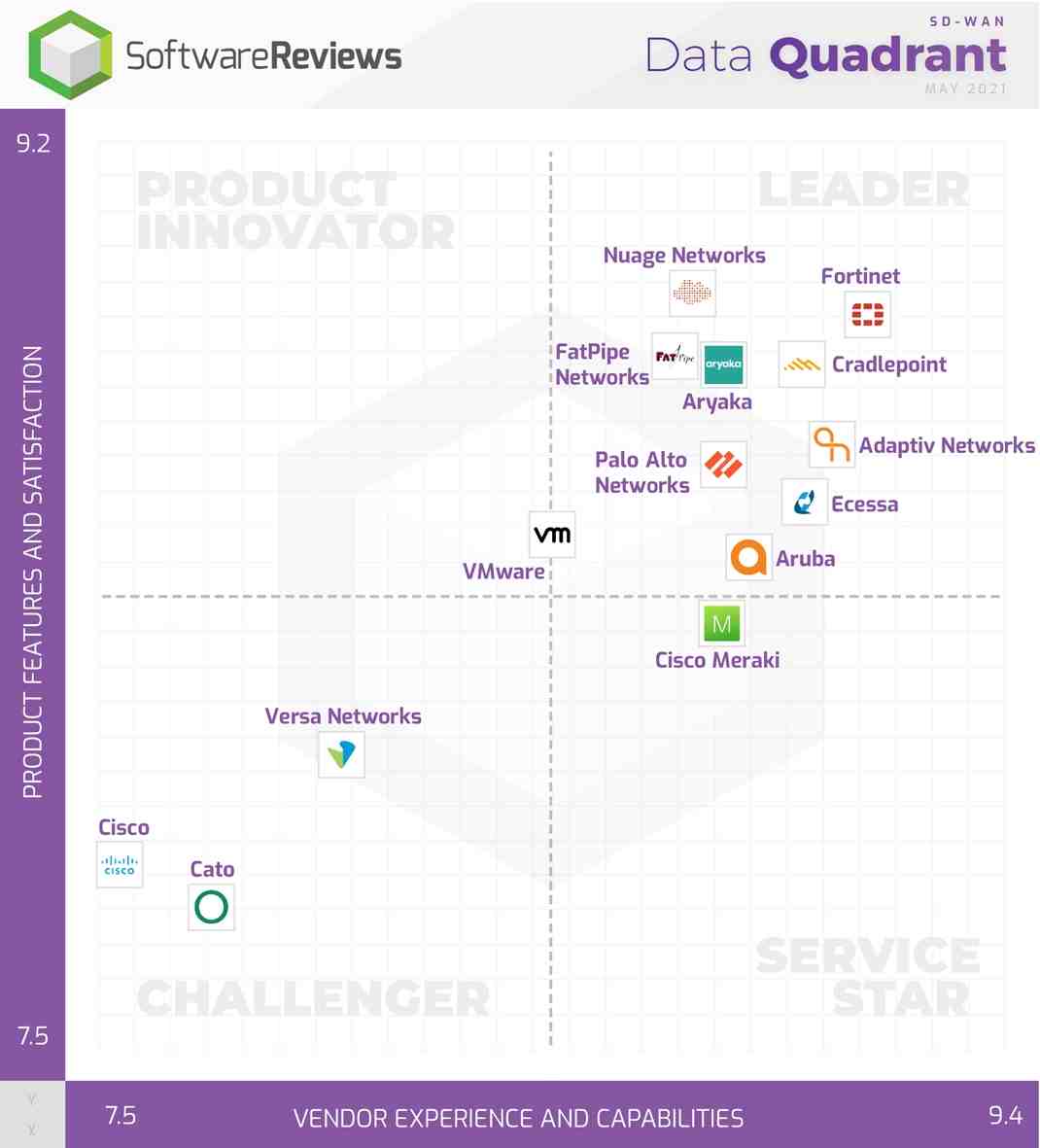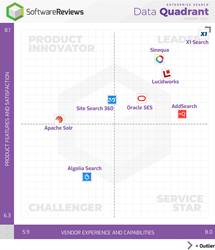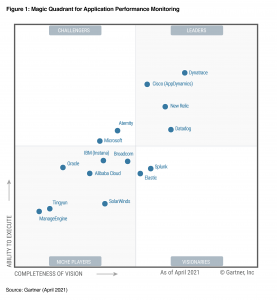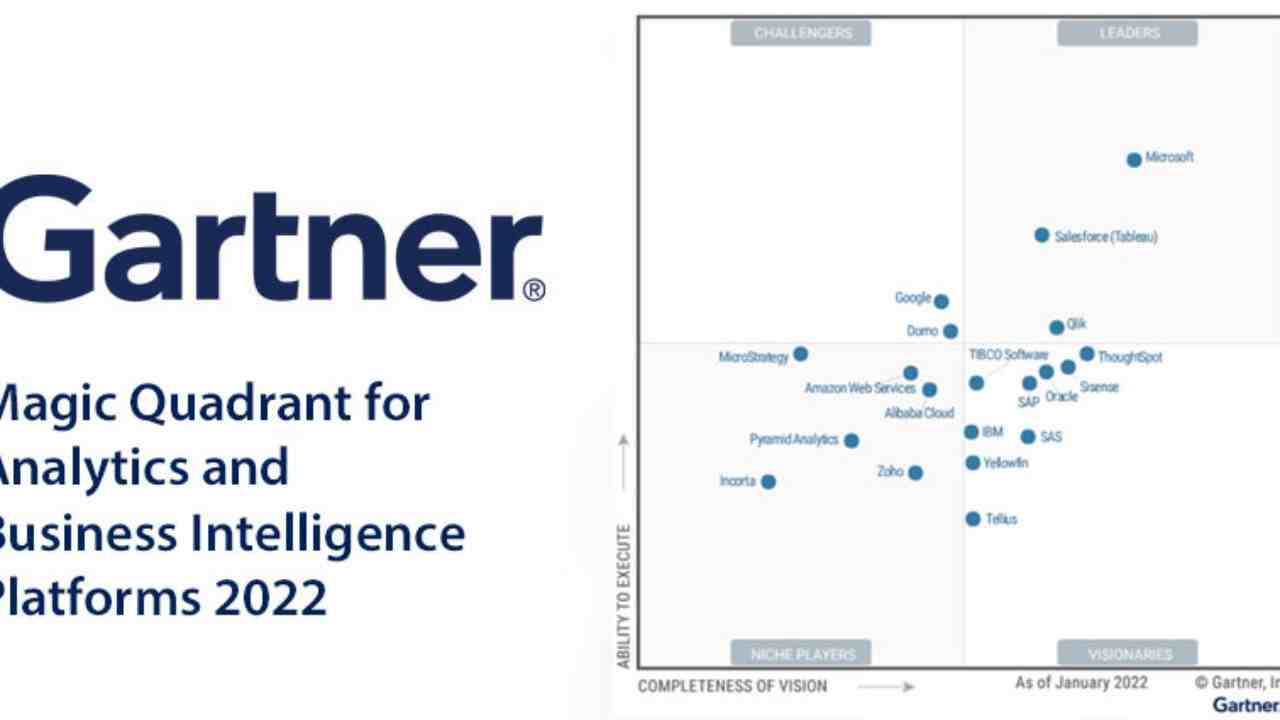SoftwareReviews, a leading source of information on the software vendor industry, has released its Search Engine Optimization Data Quadrant 2022, in which five vendors have been awarded Gold Medalists. Digital presence and online brand value have become a vital part of 2020-2021 as they have helped companies gain traction, improve visibility, and generate leads during the major transition to the internet. However, organizations also need to adopt SEO software and tools to help them create higher value content, focus on their target audience, and develop a strategy for user intent.
User Intent is the current trend in SEO. To become one of the key players in Google or other semantic search engines, organizations need to create contextual content for their key target audience. The context of this content must correspond to the user’s intention or what users are looking for in order to provide them with the greatest value.
SEO tools are a key resource for marketing leaders to ensure the visibility and relevance of their online and digital presence. SEO tools measure key metrics around your sites that can drive traffic to your sites. This includes KPIs for website speed, usability, and identifying and organizing keywords in search results to improve ranking.
To increase brand value in 2022, organizations must choose from the best SEO software and tools to improve their competitive advantage.
The best search engine optimization software vendors for 2022 were identified based on verified survey data collected from 677 end-user reviews. These vendors scored high in the SoftwareReviews data quadrant.
Suppliers are classified according to a composite satisfaction score, called the Composite Score (CS), which averages four evaluation areas: net emotional footprint, supplier capabilities, product characteristics, and referral probability.
Search Engine Optimization 2022 gold medalists:
SoftwareReviews’ comprehensive software reviews provide the most accurate and detailed insight into a complex and ever-changing market. The data comes from real end users who use the software on a daily basis and from IT professionals who worked closely with it through procurement, implementation and maintenance.
To compare and evaluate Search Engine Optimization software vendors using the most in-depth and unbiased analytical reports, visit the dedicated SoftwareReviews category page.
For more information on software reviews, the Data Quadrant, or Emotional Footprint, and to access resources to support the software selection process, visit softwarereviews.com and connect via LinkedIn, Twitter, and Facebook.
What do you mean by customer review?
Contents
- 1 What do you mean by customer review?
- 2 Is jobstreet review anonymous?
- 3 How consumers use reviews?
- 4 Can you pay for Google reviews?
- 5 Are online reviews reliable?

A customer review is a review of a product or service by the person who has purchased, used, or had experience with the product or service. Customer feedback is a form of customer feedback on e-commerce and online shopping sites.
What do you call customer reviews? Customer feedback is information provided by customers about their experience with a product or service.
How do you show customer reviews?
9 tips for creating a great customer feedback site
- Enjoy the highest quality photos and videos you can manage (send a crew if you can!)
- Make your customers look good (not only your company and your product)
- Ask your customers to share specific numbers that show how you helped their business.
What is the meaning of customer review?
A customer review is a reflection of the customer’s experience with your company’s products or services. You can find reviews on sites like Google Reviews, Amazon, Yelp, and Facebook. Consumers use customer feedback during the buyer’s journey to understand how your product performs and whether it’s worth the investment.
Where do you write a customer review?
| Website review | Alexa rank in the USA | Reviews Best For |
|---|---|---|
| Google My Business | 1 | every company |
| Amazon | 3 | related to e-commerce |
| 4 | every company | |
| Whine | 64 | every company |
What makes a good customer review?
Thorough, detailed and honest This handy overview has enough detail to give others an idea of what happened. Potential customers want to know more than that someone else was happy. They want to know what exactly they liked in order to be able to judge if it is in line with their own preferences.
Whats the definition of a review?
A review is an assessment or discussion of the quality of something. Review also means revisiting the topic as part of your study, or looking at something another time. A review has many other meanings as both a noun and a verb. A review is a critique of something – a look at the good and bad sides of something.
Is jobstreet review anonymous?

Anonymous – We believe that every reviewer has the right to speak openly and honestly without fear of retaliation, so each captured review is displayed anonymously.
How consumers use reviews?

Customer feedback statistics
- About 95% of customers read reviews before making a purchase. (Powerreviews)
- 93% of customers will read local business reviews to determine their quality. (BrightLocal)
- 72% of customers will not take any purchasing action until they read the reviews. (Reference engine)
How do reviews affect consumers? With nearly 95% of shoppers reading online reviews before making a purchase, reviews have changed the way consumers make purchasing decisions. * But reviews are about more than just buyers’ way of collecting information. Reviews are a powerful form of consumer engagement.
How do consumers use reviews?
Customers are more likely to buy from a site that has customer reviews than from a site that does not. Showing reviews on your website gives potential customers more confidence in their purchasing decisions and reduces uncertainty, leading to a higher conversion rate.
Why do consumers read reviews?
Bottom line – people read reviews because: They offer valuable tips from people who have used the service or product. Make it easy for buyers to make the decision. They prove the credibility of the company.
How do reviews help customers?
Analyzing customer reviews helps your business understand overall customer satisfaction as they can provide your business with feedback on what your customers really want.
Do consumers read reviews?
59 percent of consumers use it to read reviews. 54.7 percent of consumers read at least four reviews before purchasing a product. Almost half of all internet users say that they publish online reviews at least once a month. More than half of customers expect companies to respond to their negative reviews within a week.
How much do customers rely on reviews?
79 percent of shoppers say they trust online reviews as much as they trust personal recommendations. Google is the most popular online review platform. 59 percent of consumers use it to read reviews. 54.7 percent of consumers read at least four reviews before purchasing a product.
How much do people rely on online reviews?
Research shows that 91 percent of people regularly or occasionally read online reviews, and 84 percent trust the reviews as much as they trust a personal recommendation. And they make that decision quickly: 68 percent form an opinion after reading one to six reviews online.
Why do customers rely on reviews?
So, customers trust these opinions because they allow them to gain even more knowledge about the company and its products or services, especially when that company is not very transparent. 2. The second reason customers trust online reviews is that they rely on the opinions of others to influence what they should do.
How much do reviews affect sales?
Reviews generate an average of 18% increase in sales.
How do reviews help customers?
Analyzing customer reviews helps your business understand overall customer satisfaction as they can provide your business with feedback on what your customers really want.
How reviews help sales?
Reviews generate an average of 18% increase in sales. With greater confidence in the business, the customer purchases more than you do and is expected to come back for more purchases. According to the survey, customer reviews generate an average of 18% increase in sales.
What is the purpose of a reviews?
Basically, reviews offer consumers a public place to express their opinion. Reviews give consumers the chance to tell their story and be heard by colleagues and peer-reviewed companies.
How do reviews influence consumers?
Showing reviews on your website gives potential customers more confidence in their purchasing decisions and reduces uncertainty, leading to a higher conversion rate. It can also help strengthen your brand credibility and reliability.
Can you pay for Google reviews?

Can you pay people to write reviews? No, it’s illegal to buy Google reviews, according to the Federal Trade Commission (FTC). If a reviewer does not disclose that he was paid to leave a review, the FTC will consider that this is undisclosed paid endorsement and may charge exorbitant fees for it.
Can you buy google reviews? No, it is against the law to buy Google reviews. As discussed earlier in this article, the FTC considers undisclosed premium recommendations to be illegal. If you are caught buying fake reviews, you will be fined like many others. It’s just not worth it.
How much is it to buy Google reviews?
Buy Bulk Reviews is another really good option if you want to be able to buy Google reviews on a budget, with prices ranging from $ 2.97 to $ 1,800.
Is there a way to buy Google reviews?
For something that is illegal, buying these fake reviews is surprisingly easy. Just type “buy Google reviews” on Google and you’ll see an ad after an ad from online reputation companies that offer to help you “upgrade your rating” and “bury those negative reviews.” €. Sounds tempting, doesn’t it?
Does Google review cost?
There are no fees for issuing or replying to reviews. Positive recommendations of your company in your company’s profile are free advertising of your company on Google on the most trusted platform in the world.
Do people pay for fake Google reviews?
The Federal Trade Commission (FTC) Act was created to protect consumers and punish those who wish to purchase Google reviews or any kind of fake reviews. If you are caught using fake or bought reviews, you will face the ramifications of the FTC.
Do people pay for fake Google reviews?
The Federal Trade Commission (FTC) Act was created to protect consumers and punish those who wish to purchase Google reviews or any kind of fake reviews. If you are caught using fake or bought reviews, you will face the ramifications of the FTC.
Can you get in trouble for posting fake Google reviews?
The answer is yes, posting fake reviews is illegal. The FTC is looking for companies for this.
Do people pay for fake reviews?
“The FTC has the right to hold companies liable for anything they do about false, false or misleading opinions, and they may be required to pay consumer compensation or make consumers do the right thing,” explained Amber Lee, an attorney at FTC Advertising Practices Department.
How much does fake reviews cost?
The $ 152 Billion Fake Reviews Problem Translating this into the economic impact, the direct impact of fake online reviews on global online spending is $ 152 billion.
Can you pay for a review?
It is not illegal to reward someone for consumer reviews / recommendations. However, the key here is DISCLOSURE. The reviewer or validator MUST disclose in the review that he has received some form of consideration in cash or in kind.
Are online reviews reliable?

One study suggests that 91% of people trust online reviews as much as personal recommendations – as long as the reviews are genuine. But about 20% of reviews are fake.
Can you trust negative online reviews? Online reviews are becoming less and less reliable. The credibility of all online reviews is questionable. A 2016 study found very little correlation between objective ratings by Consumer Reports and online consumer ratings. Reviews are subjective and the people who write them are not average.
Can you really trust online reviews?
Do customers always trust reviews? Of course not. Some reviews are unfounded, inaccurate or false. Although 91 percent of people trust reviews as much as personal recommendations, nine percent of people are quite skeptical about online reviews and only trust a few reviews.
Can you really trust Google reviews?
Despite all these reviews – or maybe because of them – the ratings on Google are just not reliable. This can be frustrating for small business owners who suffer from fake reviews. And it misleads consumers into making purchases based on recommendations that are not based on facts or even opinions.
Can review sites be trusted?
Recent research suggests that reviews found on social networks and review sites like Yelp may not be as reliable as people think. According to this survey, around 20% of restaurant reviews (positive or negative) are false.
What percent of online reviews are fake?
Only 3% to 10% of people actually write reviews. 61% of electronics reviews were considered ‘fake’. As of March 2019, Amazon had 2 million unverified reviews.
Are most Google reviews fake?
Despite all these reviews – or maybe because of them – the ratings on Google are just not reliable. This can be frustrating for small business owners who suffer from fake reviews. And it misleads consumers into making purchases based on recommendations that are not based on facts or even opinions.
What percent of reviews on Amazon are fake?
About 42% of the 720 million Amazon reviews rated by the Fakespot monitoring service from March to September were unreliable, compared with about 36% for the same period last year. The rise in fake reviews corresponded to the Internet mass of millions of shoppers who avoid viruses.
How often are online reviews fake?
Of the online customer reviews analyzed in 2020, 30.9% were found to be false. This is according to a new report by Fakespot, the creator of artificial intelligence technology that helps users identify problematic online reviews and sellers.
